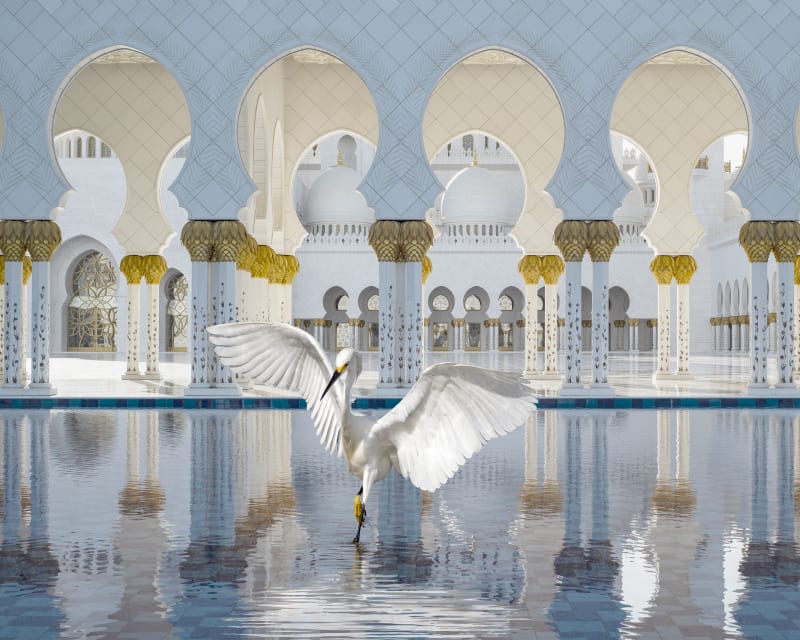In thirty key works, this exhibition offers a look at the work of an emblematic figure of contemporary photography.
Gallery Les Filles du Calvaire is pleased to present an overview of Karen Knorr’s work, unveiling an unseen selection of her most recent photographs, alongside major works from her historical series, rarely shown since the 1990s, for a new generation and a new audience to see.
The photographer who is based in the London emerged in the 1980’s 1980’s in parallel to the now famous "Picture Generation" in the USA yet Knorr’s work was imbedded in a British European context with profound interest in critical debates that circulated around postmodernism and feminisms linked to film studies and the fine arts in Britain.
Karen Knorr’s early black and white image and text works are to be linked to the process of appropriation of images used by artists such as Richard Prince and Sherrie Levine in the exhibition "Beyond the Purloined Image" curated by the artist Mary Kelly in 1983 at Riverside Studios. These methods of disruption and distanciation deployed in these early works continue to operate into her most recent work, "Questions After Brecht," a video shown for the first time at the gallery.
Documentary photography has a long tradition in Britain, and one must imagine the historical context of revival, of questioning and reinvention from the 1970s onwards. During the following decade, the "new documentary" was inspired by the processes of contemporary art, manipulating notions of authenticity. This was played out in Knorr's work, where a carefully observed reality and some consciously constructed illusions merge together. She develops a critical and playful dialogue with documentary photography, using different visual and textual strategies to explore her subjects, which range from family (and lifestyle) to the animal and its representation in a museum context.
Belgravia (1979-1981) is a black-and-white series of photographs that combines images with ironic and humorous texts. The series highlights the aspirations, lifestyle and class system of the British under the Thatcher era. In the process, Knorr does Gentlemen
(1981-1983), a critically acclaimed series, shot in the men's clubs of St. James's in London. The photographer examines the patriarchal and conservative values of Britain at the time of the Falklands War. Later, the series Country Life (1983- 1985) criticizes aristocratic values, property and considers the landscape of the Scottish Frontier. In 1986, with Connoisseurs, Karen Knorr uses color to explore the "English connoisseurship" or "art of the connoisseur," with its values of authenticity and heritage. She uses the interiors of Chiswick House, Osterley Park House and the Dulwich Picture Gallery as settings for her stagings.
The use of text and subtitles appears as a way to slow down the consumption of the image, and to offer a commentary on the preconceived notions that plague museum culture and the Fine Arts. Karen Knorr is still using these strategies through her photo collages of animals, objects and models in museums and formal architecture. These include the Academies, Fables, India Song and Monogatari series. These works also question the authority and power of heritage sites in Europe, India or Japan. She is currently researching a new project about her childhood connections to Puerto Rico and retracing Berenice Abbott’s US1 with Uk photographer Anna Fox.
In thirty key works, this exhibition offers a look at the work of an emblematic figure of contemporary photography. Through her political and artistic commitments, Karen Knorr has developed a singular and critical body of work whose scope the gallery wishes to highlight.


